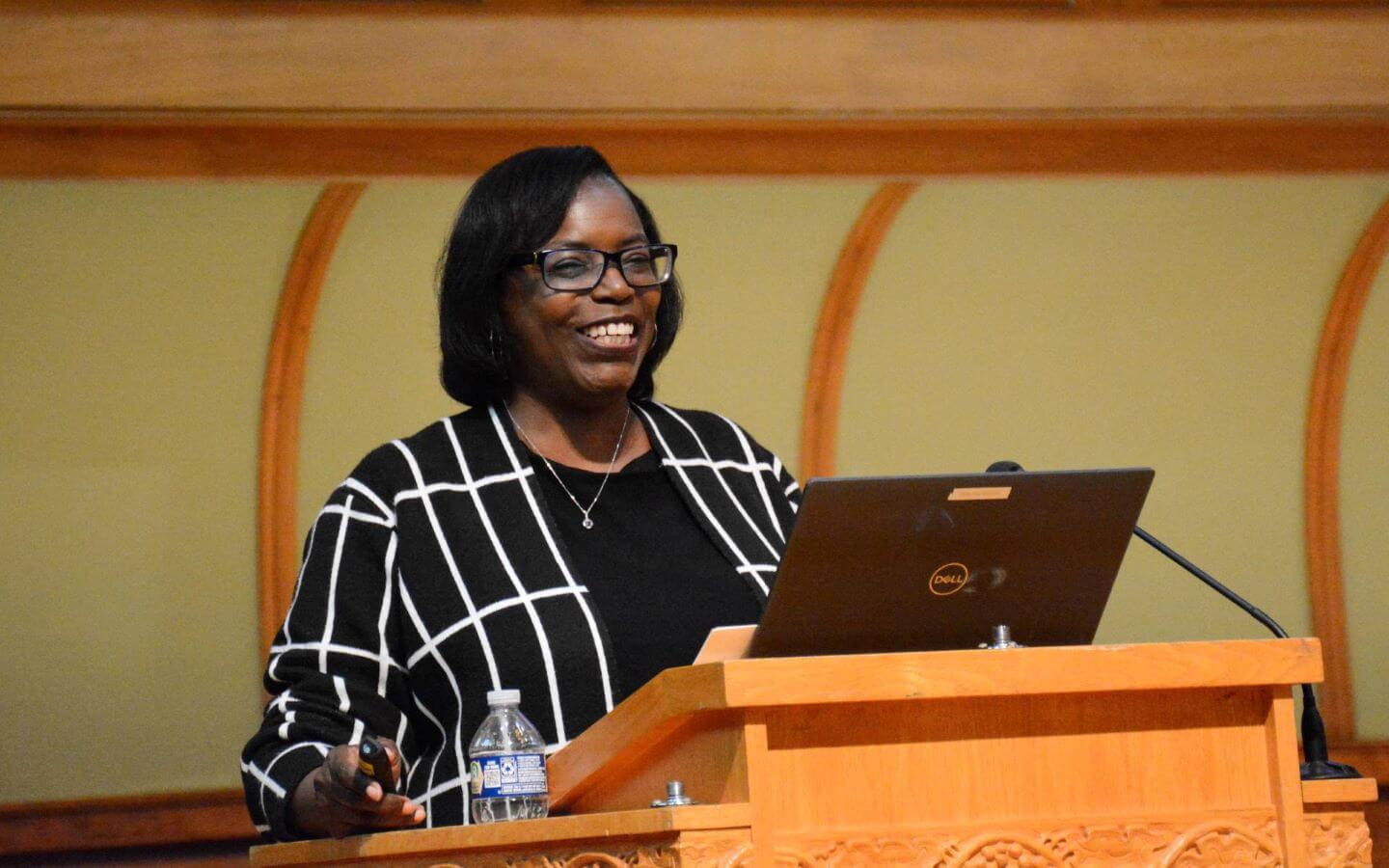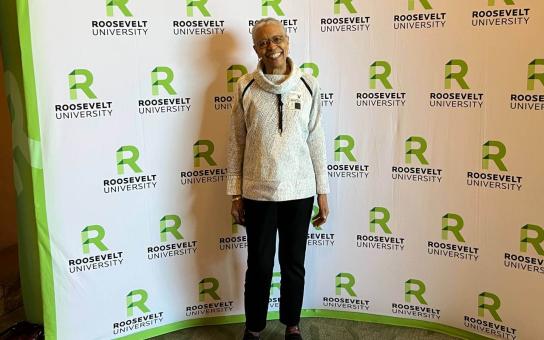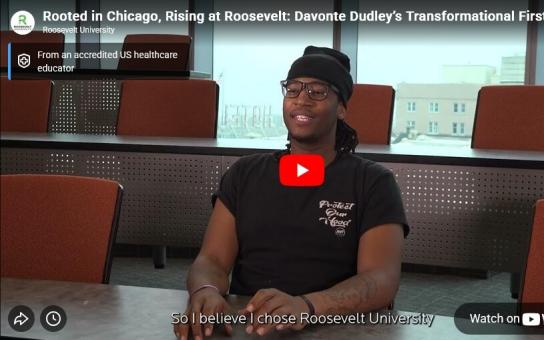
Roosevelt welcomed activists, academics and authors to discuss empathetic paths forward for the University’s Social Justice Day. Part of Roosevelt’s ongoing 80th anniversary celebration and hosted by the Mansfield Institute for Social Justice, the day was centered on the University’s legacy of educational accessibility and giving back to Chicago communities.
After a brief introduction from Mansfield Institute Director Heather Dalmage and Deputy Chief Diversity Officer Natasha Robinson, the day began with a panel discussion titled “The Chicago Future Fund: The Impact of Guaranteed Basic Income on the Lives of Post-Incarcerated Individuals.” Moderated by sociology professor Stephanie Farmer, the discussion focused on how a pilot program funded through EAT (Equity and Transformation) lowered recidivism levels and helped formerly incarcerated people stabilize their finances. Conducted with primarily Black and male residents of Chicago’s South and West sides who were previously imprisoned, the program discovered that $500 monthly cash contributions helped with higher employment rates, more secure housing opportunities and fewer police interactions.
“We found that beyond material benefits, mental well-being and physical well-being increased immensely with just the $500 cash contribution once a month to these individuals,” said panelist and EAT founder Richard Wallace. “There’s such a clean connection between a more stable economic situation resulting in improved mental health and dignity for people boxed out of resources because of their background.”
Following the panel was the Matthew Freeman Lecture, which welcomed Melanie K. Hall and her talk entitled “Mindful Communication: The Intersection Between Words, Emotions and Social Impact.” Hall earned her MA in Clinical Mental Health Counseling from Roosevelt in 2011, and her lecture focused on mindful communication and navigating the sometimes-difficult dynamics of interpersonal relationships.
“Words should validate and affirm, not create negative tension or lack of trust in a conversation,” she said. With helpful expressions such as Keep It, Tweak It, and Trash It,” Hall demonstrated numerous ways to identify forward-looking conversation approaches and how to make individual interactions constructive.


